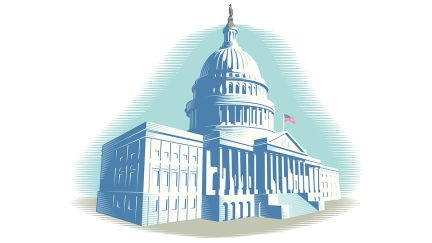Never miss a story — sign up for PLANADVISER newsletters to keep up on the latest retirement plan adviser news.
Participants’ Retirement Outlook Has Improved
Fifty-two percent think they will be able to retire at their ideal retirement age, and 52% say they either somewhat or strongly agree that their savings will last throughout their lifetime.
Fifty-two percent of participants think they will be able to retire at their ideal retirement age, and 52% either somewhat or strongly agree that their savings will last throughout their lifetime, according to a survey by J.P. Morgan Asset Management. This shows a marked improvement from 2012, when 30% expected to be able to retire at their ideal retirement age, and 31% were confident their savings would last throughout their lifetime.
The survey also found that 30% of participants are saving as much as they can, and 12% intend to wait until they retire to figure out how to live on what they have saved. Fifty-one percent are willing to spend time planning but don’t know how to get started. Only 40% are very or extremely confident they know how much to save in order to achieve their retirement goals, 39% think they have estimated how much they will have saved by retirement and only 34% have figured out how much monthly income their savings will generate in retirement.
Seventy-three percent think they should be saving 10% or more, but among this group, 70% failed to achieve this. Only 34% are very or extremely confident in their ability to select investment options, and only 39% can say the same about adjusting their savings as they approach retirement. Sixty percent want help with their investment strategy and want to leave most of the decisions to experienced investment professionals, and 40% want to take more of a hands-on approach as a do-it-yourself investor. Twenty-five percent have not checked to see if their savings rate is sufficient, 33% have never changed their investment selection, 50% have reviewed their 401(k) in the past six months, and only 40% have considered making a change to their 401(k) in the past six months.
Seventy-nine percent believe their employer should encourage workers to contribute to the retirement plan. Fifty-eight percent think their employer should provide guidance on how much to save, and 44% think their employer should alert them if they are not saving enough. Only 19% think their employer should decide how much each participant should save.
Seventy-nine percent say their employer offers a match. Forty percent think their employer should change their match to a stretch match of 50 cents on the dollar up to 12%. Twenty-seven percent think their employer should not change their match formula but should encourage employees to save more. Twenty percent think their employer should not change the match formula but send a message to employees who are only saving 6% that they should be saving more, and 13% said their employer shouldn’t do any of the above.
Thirty percent think that their company match is a contribution recommendation, and 21% set their contribution rate at the company match rate.
Although 25% of sponsors are not using automatic enrollment due to their fear of participant pushback, 82% of participants are either in favor of or neutral towards automatic enrollment. Participant pushback is keeping 20% of sponsors from using automatic escalation, but 80% of participants are either in favor of it or neutral towards it.
Among the participants who have been automatically enrolled, 95% are satisfied. Only 1% opted out, and 33% said that if they had not been automatically enrolled, they probably would not have enrolled in the plan. Among those who have been automatically escalated, 97% are satisfied.
Sixty-two percent of participants with both automatic features expect they will be able to retire when they want, compared to 46% of those who were only automatically enrolled. Eighty percent of those with both features somewhat or strongly agree that their savings will last throughout their lifetime, compared to 47% of those who were only automatically enrolled.
Eighty-six percent of participants are in favor of or neutral towards reenrollment, and 83% of participants who went through a reenrollment with a TDF as the qualified default investment alternative (QDIA) allowed their assets to be moved.
Sixty-one percent somewhat or strongly agree that they would let an expert manage their account, and 61% would completely turn over their retirement planning to an investment professional. Thirty-seven percent think their employer has an obligation to pick the right investments, but only 20% think their employer should select their investments on their behalf.
Eighty-eight percent say that target-date funds (TDFs) are somewhat or very appealing, and 71% say they are invested in TDFs.
J.P. Morgan’s findings are based on an only survey of 1,295 participants that Matthew Greenwald & Associates conducted in January.
You Might Also Like:

Most Workers 55 And Older Are Unprepared for Retirement

Senate Bill Supports Retirement Plan Reenrollment



